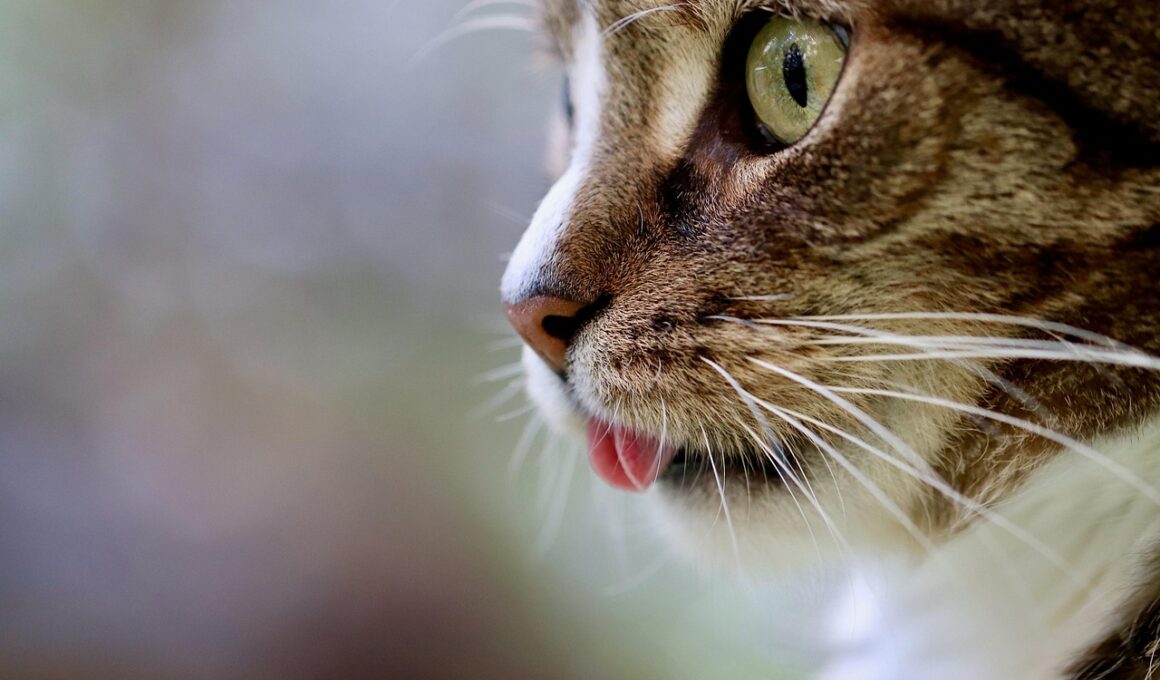The Link Between False Information and Cat Vaccination Myths
The health of our feline friends is paramount, and understanding the importance of vaccinations is crucial for any cat owner. Unfortunately, misinformation surrounding cat vaccinations abounds, leading many to doubt their necessity. This false information often stems from anecdotal experiences and internet myths rather than scientific evidence. Many people believe that vaccinations can cause more harm than good, citing old wives’ tales as facts. In reality, vaccinations are vital in protecting cats from serious diseases. By vaccinating our cats, we minimize the risk of outbreaks of diseases like feline leukemia and feline infectious peritonitis. It’s vital to recognize that these vaccines undergo rigorous testing before their approval. Despite this, some owners choose to skip essential vaccinations based on unfounded fears. Addressing these misconceptions is essential for the well-being of our cats. It is also crucial to consult with veterinarians who can provide guidance based on the latest research rather than relying solely on unverified information. Spreading awareness can help dispel myths and encourage responsible pet ownership.
Identifying Common Myths
There are numerous myths surrounding cat vaccinations that can confuse pet owners. Understanding and debunking these myths is essential. For instance, one common belief is that indoor cats do not require vaccinations, as they are not exposed to other animals. This misconception can be dangerous; even indoor cats can be exposed to harmful diseases through various means. Additionally, some pet owners mistakenly think that vaccines can cause serious health issues. Vaccines are designed to stimulate the immune system to protect the body against illness, and serious adverse reactions are extremely rare. Another myth is that once a cat receives its initial vaccinations, they do not need further shots. Regular booster vaccinations are crucial to maintaining immunity and protecting your pet. Furthermore, some owners might assume that homemade or natural remedies can replace vaccinations. While holistic practices can enhance overall health, they cannot substitute vaccines’ preventative capabilities. Lastly, other people worry about the side effects of vaccinations often ignoring the serious diseases vaccines protect against, such as rabies, which can be fatal.
The consequences of believing in vaccination myths can be dire for cats. When owners opt out of vaccines based on misinformation, they expose their pets to potential life-threatening diseases, such as feline distemper. These diseases often manifest suddenly and can lead to severe health complications or even death. Observing such preventable suffering can be heartbreaking and entirely avoidable. Regular vaccinations ensure heightened immunity, allowing for a healthy and happy life for cats. Another concerning myth suggests delaying vaccinations until a certain age, under the impression that kittens are protected by maternal antibodies. While maternal immunity provides temporary protection, it does not last indefinitely. Kittens should receive vaccinations at recommended intervals to establish their immune system effectively. Additionally, misinformation may instill fear regarding the safety of vaccines, leading to delays. This can harm not only an individual cat but also the entire feline population, as unvaccinated cats can serve as reservoirs for diseases. Preventive care should always remain a priority in a cat’s healthcare regimen.
The Role of Veterinarians in Vaccination
Veterinarians play a pivotal role in dispelling cat vaccination myths and providing accurate information. They are professionally trained to understand the significance of vaccination schedules and recommend standards relevant to pets’ health. Moreover, vets stay updated on the latest research and vaccine developments, ensuring the best advice for pet owners. When consulting with a veterinarian, owners should feel encouraged to ask questions about vaccine safety and efficacy. A good vet will provide transparent information, helping to assuage fears rooted in misinformation. In addition, veterinarians can help develop personalized vaccination plans based on the specific needs of each cat. For instance, factors such as age, health status, and lifestyle can influence vaccination recommendations. It’s essential to foster a dialogue with your vet regarding any concerns, allowing shared knowledge to create optimal vaccine strategies. Additionally, vets can educate owners about the proper post-vaccination care and what symptoms to observe. By collaborating with a trusted veterinarian, pet owners can ensure their cats are adequately vaccinated while having their questions answered and misconceptions addressed.
Another significant issue relating to cat vaccination myths is the impact of social media. Many pet owners turn to platforms like Facebook, Instagram, and Twitter to seek advice regarding their pets, which can often lead to the spread of misinformation. Viral posts may present outdated studies or personal anecdotes as unequivocal truths, which can mislead well-meaning pet owners. Influencers or individuals without veterinary training may share opinions contrary to scientific evidence, popularizing myths about cat health and vaccination. It’s essential for cat owners to distinguish between evidence-based advice and personal experience narratives on social media. This could involve cross-referencing information with reputable sources, including veterinary websites or the American Animal Hospital Association. Social media does have the potential to provide community support among pet owners, but caution is essential in interpreting the information shared. Engaging with verified veterinarians or reputable animal healthcare providers can mitigate the risk of following harmful advice. Encouraging the sharing of scientifically-backed resources within these platforms can also cultivate an informed pet-owner community, leading to better health decisions for cats.
Ensuring Proper Education and Awareness
Ensuring that cat owners are educated about the importance of vaccinations starts with accessible information. Veterinary clinics should provide educational materials that detail the significance of vaccines and debunk prevalent myths. Workshops or community events can also focus on the benefits of vaccinations and address concerns pet owners may have. Engaging a wider audience about the topic is essential in combatting misinformation. Collaboration with animal welfare organizations to develop outreach programs can foster awareness on a larger scale, particularly in underserved communities. Furthermore, utilizing social media wisely can enhance awareness about vaccination schedules and the necessity of boosters. Sharing testimonials from pet owners who have maintained their cats’ vaccination statuses can inspire others to prioritize their pets’ health. Educational initiatives should be clear, concise, and rooted in scientific evidence to build trust within the pet-owner community. It’s crucial for the messaging to include that vaccinations are not only about individual cat health but also communal health, preventing outbreaks that could impact many animals. This collective responsibility can encourage responsible pet ownership across the board and emphasize that healthy cats build a healthy community.
Addressing cat vaccination myths is a shared responsibility among pet owners, veterinarians, and the broader community. Leveraging the expertise and authority of veterinarians, community education, and proactive engagement can help dispel harmful myths. By prioritizing factual information over anecdotal beliefs, we can create a culture of well-informed cat ownership. Cat vaccinations are a crucial part of preventive healthcare, ensuring that everything from routine care to emergency medical treatment is grounded in sound health fundamentals. The consequences of misinformation can lead to adverse health outcomes not just for individual cats but also for entire populations. Ensuring that cat owners endorse and follow vaccination protocols is vital to building an environment where cats can thrive. Continued efforts to address misinformation should encourage owners to share truths about vaccinations with others within their community. By fostering informed discussions, we can facilitate better decision-making regarding vaccinations for our feline companions. Ultimately, it is through education, open communication, and collaboration that we can combat myths surrounding cat vaccinations, ensuring the health and safety of our beloved cats for years to come.
In conclusion, cat vaccination myths stem from misinformation and misconceptions that can adversely affect a cat’s health. It is essential for pet owners to understand the importance of vaccinations and to challenge any unverified claims they may encounter. The risks associated with failing to vaccinate far outweigh concerns bred from myths. Regular communication with veterinarians and utilizing trustworthy resources can empower pet owners to make informed decisions for their furry friends. Vaccinating cats not only protects them individually but also safeguards other cats by preventing outbreaks. Collectively, as a community of responsible pet owners, drawing attention to the benefits of vaccination will lead to a healthier generation of cats. We should strive to foster a culture of knowledge sharing, where factual information prevails, ultimately prioritizing our pets’ well-being. This will contribute to significant improvements in public awareness surrounding cat health. By valuing comprehensive education about cat vaccines, we can transform skepticism into understanding and assurance. In doing so, we can fortify the health of our feline companions and ensure that they live long, happy, and healthy lives.


